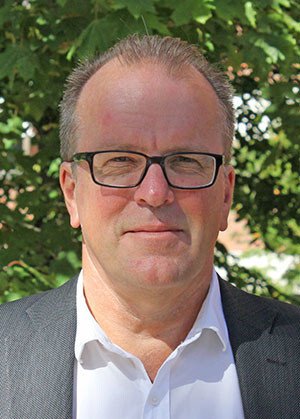First project to create atlas of human microbiome
The five-year Million Microbiome of Humans Project (MMHP) is now underway, as KI researchers begin leading the efforts to construct a genome atlas of the human microbiome.

“The project is an enormous initiative, and a real challenge to coordinate,” says Professor Lars Engstrand, head of the Centre for Translational Microbiome Research (CTMR) at the Department of Microbiology, Tumour and Cell Biology, Karolinska Institutet.
Increasing knowledge in the field
The work being done by the CTMR is the very reason why the project is being led by KI professors Lars Engstrand and Mathias Uhlén. The CTMR is a leading centre for microbiome research that was founded in 2016 with the aim of improving the understanding of the human microbiome and its implications for health and disease.
There is a great deal of interest in how micro-organisms affect our health nowadays, as Professor Engstrand notes:
“Creating a platform for more structured research will help us learn more about the field. We’ve only been able to describe the presence of bacteria in the body, but by mapping the genome with powerful sequencing platforms we’ll be able to reveal the functional capacity of the entire microbiome.”
The project will also help scientists create a standardised model for studying the microbiome, something that is currently lacking.
Free access for all researchers
A million samples from around the world will be taken under the MMHP to map the microbiome of the gut, skin, mouth and vagina. The sequenced genomes will then be collected into a database that will be made freely accessible to all scientists the world over.
According to Professor Engstrand all the collected data will be anonymised so that the databases will only contain information on the micro-organisms, the part of the body from where they were taken, and the sex, age and geographical location of the source individuals.
This is the largest initiative to date to gather knowledge on how different flora of micro-organisms vary by geographical location and sex.
“This knew knowledge will be essential to the development of individually tailored treatments, or what is known as precision medicine. We know that the microbiome impacts heavily on a good many treatments, from normal drugs to immunotherapy for cancer. In the future, we’ll also be able to factor it in when treating patients.”
Five countries are currently involved in the MMHP, but more are expected to join, including from the entire Nordic region.
The original project participants are Karolinska Institutet, the Shanghai National Clinical Research Center for Metabolic Diseases, Copenhagen University, the Technical University of Denmark (DTU), MetaGenoPolis at France’s National Institute for Agricultural Research (INRA), the Latvian Biomedical Research and Study Centre and the BGI research centre in Shenzhen, China.
